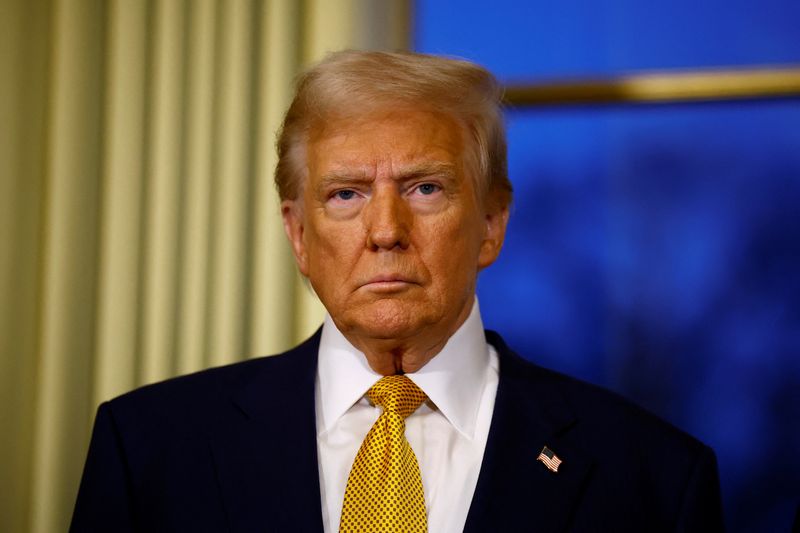Investing.com -- Global equities climbed, Treasury yields declined, and the US dollar weakened following this week’s report from the Washington Post (NYSE:POST) suggesting that Trump’s team was considering universal tariffs targeting key imports from all countries.
If implemented, the new policy would “pare back the most sweeping element of Trump’s campaign plan,” the report said.
But President-elect Trump denied the claims on social media, criticizing the Washington Post’s reporting. This helped ease pressure on the dollar and Treasury yields, although equities maintained gains until robust US economic data on Tuesday shifted investor sentiment.
While the outlook for future tariff policies and trade negotiations remains uncertain, UBS strategists highlighted several key points that stand out for investors.
According to the bank, Trump’s return to office is likely to bring increased headline-driven volatility.
Monday’s rapid market response to the tariffs story and its denial signals the potential for significant swings in the coming year, with a return to “policymaking-by-tweet suggesting a new period of heightened cross-asset volatility,” strategists said.
While the dollar’s movement reflects crowded long positions, sharp intraday fluctuations in tariff-sensitive assets, like the Hang Seng, could offer insights into future market conditions.
"So while tariffs talks are worth monitoring, we believe a constructive stance is still warranted on both global equities and on US stocks in particular,” strategists led by Mark Haefele wrote.
UBS expects the bull market to continue, with the S&P 500 forecast to reach 6,600 by year-end, driven by projected profit growth of 9%.
“Our base case remains for selective new tariffs under Trump 2.0, likely causing one-time price increases in the US without triggering a more damaging inflationary spiral,” the report continued.
"We see a smaller chance for a 'tariff shock' bear case, in which Trump imposes large, blanket tariffs on most US imports, triggering significant retaliation from trading partners and pushing inflation higher."
UBS believes investors underexposed to US equities should consider using near-term volatility as an opportunity to increase holdings.
Structured strategies may offer a path to enhanced exposure. A moderation in US dollar strength is expected, with potential benefits in trading currencies such as the Australian dollar, British pound, and Norwegian krone.
